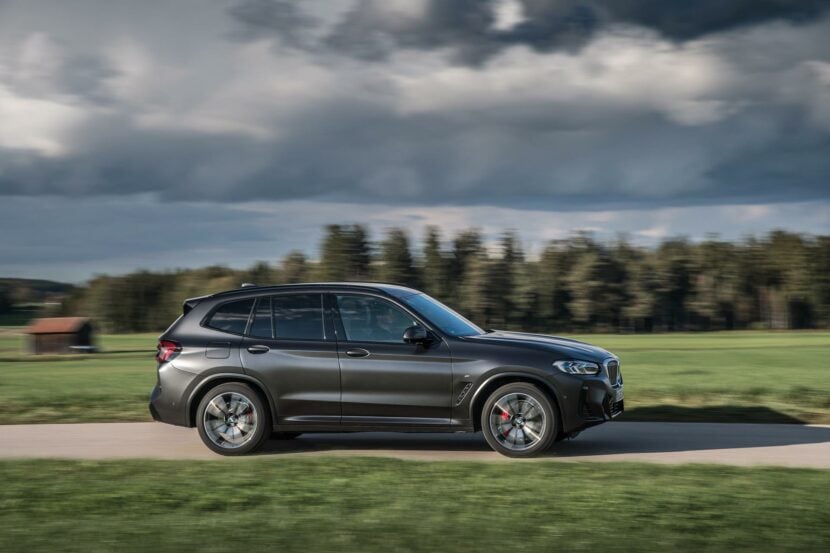We all know the official fuel consumption figures published by an automaker are hard to match in real life. How big of a discrepancy is there? It depends on a variety of factors such as your driving technique, outside temperature, the amount of traffic, the quality of fuel, etc. Funded by the Australian government, the Australian Automobile Association’s Real-World Testing Program assesses fuel consumption in the real world and then compares the results with the official numbers published by the automaker.
13 cars were evaluated in the latest round of testing, and five of them had a fuel consumption between 9 to 20 percent higher than claimed. Interestingly, the BMW X3 was the worst offender since it needed 20 percent more fuel than what BMW advertises. The test involved a 2021 X3 xDrive30i with a turbocharged 2.0-liter gasoline engine, an eight-speed automatic transmission, and all-wheel drive.
The luxury crossover had 27,581 kilometers (17,138 miles) on the clock when the test started on November 28, 2023. It lasted for two days and involved driving the X3 in Geelong surrounds, a port city in Victoria, Australia. The weather conditions alternated between damp and dry while the temperatures varied between 17 to 22 degrees Celsius (62.6 to 71.6 degrees Fahrenheit), with winds of up to 28 km/h (17.4 mph). The trip lasted for 93 kilometers (57 miles), during which the posh family SUV averaged 8.9 liters / 100 km. BMW claims this version of the X3 sips only 7.4 liters / 100 km.
It consumed 10.5 liters in the city, 8.5 liters on the highway, and 7.6 liters on rural roads. CO2 emissions reached 208 g/km, a significant increase of 23 percent over the 169 g/km declared by BMW Australia.
During the same test, BMW X3’s rival Audi Q5 wasn’t much better either since it consumed 17 percent more fuel than claimed.
The Kia Carnival was the winner as the South Korean minivan managed to beat the automaker’s official numbers by posting seven percent lower fuel consumption.
You can read the full report about the BMW X3 at the source link below.


